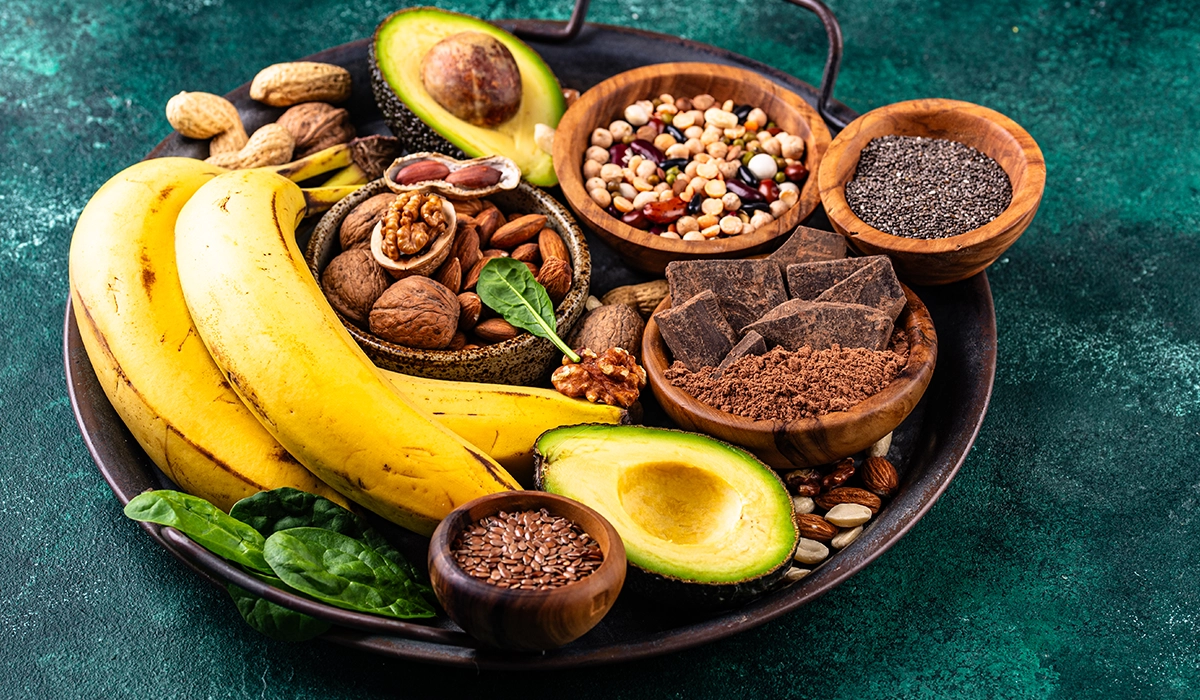Potassium is an essential mineral and electrolyte that plays a crucial role in various physiological processes in the human body. It is represented by the chemical symbol “K” and is one of the most abundant intracellular cations (positively charged ions). Potassium is essential for maintaining proper cell function and overall health.
Dietary Sources: Good dietary sources of potassium include fruits (such as bananas, oranges, and avocados), vegetables (including potatoes, spinach, and tomatoes), legumes, nuts, seeds, and dairy products.
Potassium is a vital nutrient for overall health. However, individuals with certain medical conditions, such as kidney problems, may need to monitor their potassium intake.
Some benefits include:
Nerve Function
Potassium is involved in the transmission of nerve impulses. It helps generate and regulate electrical impulses.
Muscle Function
Potassium plays a critical role in muscle contraction, including the contraction of skeletal muscles and the heart muscle.
Heart Health
Adequate potassium intake is associated with a reduced risk of heart disease & stroke. It helps maintain normal heart rhythm.
Kidney Function
The kidneys play a critical role in regulating potassium levels in the body by excreting excess potassium through urine.
RDA
Adults – 1600 to 2000 mg per day










